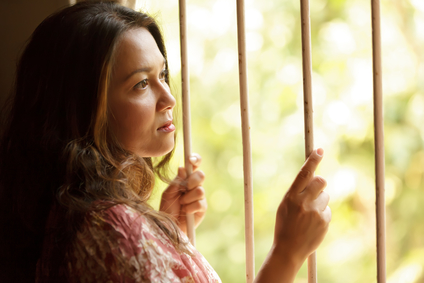When you think of couples counseling, you most likely envision two partners sitting together in a room with a marriage counselor, discussing their issues. While this is usually the preferred approach, there are times that one spouse simply cannot, or will not, attend therapy. This raises the question, “Can One Spouse Do Marriage Counseling Alone?”
Why One Spouse May Say No to Therapy
It is an all-too-common problem: a couple agrees that there are problems in their relationship. One spouse suggests that they go to couples counseling to work on the relationship, but the other refuses. Often, this leads the spouse who wants to go to therapy to believe the other spouse “doesn’t care” or doesn’t love them enough to do the work to fix the relationship. However, there are many reasons why a spouse may say no to therapy:
- They feel forced into counseling because if when or how it was raised
- They are worried the fights will get worse instead of better (as the therapist “unpacks” the problems)
- They don’t want to be “teamed up” against by the therapist and their spouse
- They are afraid to be blamed for all the problems in the marriage
- They feel uncomfortable sharing their thoughts or feelings with a stranger
- They are not ready to address their own mental health issues
- They are withdrawn from the relationship as a coping mechanism
- They have financial or practical concerns about therapy
- They do not place a high value on the relationship
- They do not believe in the benefits of psychotherapy or couples counseling
It is important to avoid assuming your spouse’s reasons for saying no to therapy. Rather than casting blame or judging their reasoning, you can work with a marriage counselor on your own to lay the groundwork for a healthier marriage.
Get help with relationship problems today.
Talk to a couples counselor about creating a healthy relationship dynamic.
Individual Therapy vs. Couples Counseling
There is a key difference between individual therapy and couples counseling, even if only one spouse is attending. When one person attends individual therapy, it is generally to address symptoms and circumstances specific to the person, such as anxiety attacks, depression symptoms, trauma responses, suicidal thoughts, or self-destructive behaviors. The goals in individual therapy focus on improving the person’s coping mechanisms, and reducing the severity or frequency of symptoms. While individual therapy can include techniques to improve communication or resolve conflict, these are generally means to a different end.
In contrast, couples counseling focuses on the relationship dynamic between two people. The focus is on the way the parties interact, communicate, and support (or fail to support) each other. Conflict resolution and communication techniques often take center stage. While each person’s history, behaviors, and thought patterns may be considered, it is for the purpose of examining what that person is bringing to the relationship or needs from it.
There is some overlap, certainly. Sometimes, a couples therapist may meet with one or both spouses individually or recommend that they seek out individual therapy from another psychotherapist. Similarly, a psychotherapist may address the way the individual engages in relationships around them. What is important is for both you and the therapist to have a clear understanding about your therapeutic goals, and the role the professional will play in helping you reach them.
Challenges When Only One Spouse Attends Marriage Counseling
There is a risk to engaging in individual therapy primarily to obtain relationship goals. Clients who avoid couples therapy and instead seek out individual therapy for relationship help are far more likely to end their relationships. This is because the individual is the focus in those cases. Where the purpose of counseling is not clear, the psychotherapist may empower the client, rather than focusing on the relationship as a system. Without the added context, the therapist may not hold the client responsible for their own shortcomings, leaving the spouse believing that the best way forward is out of the relationship.
However, even when therapy goals are centered on couples counseling and relationship issues, not having both spouses in the room can create challenges. The non-participant spouse is not able to provide their perspective on the conflicts at hand. The participant spouse and therapist may have to take their best guess. As the participant tries new methods of changing the couple’s unhealthy dynamic, the non-participant spouse may not understand what is happening, and could misinterpret the cues or push back against the change. Because of this, when one spouse does marriage counseling alone, progress is often slower, and there may be more false steps and obstacles along the way.
The good news is that, often, once the non-participant spouse begins to see the positive changes caused by one spouse attending marriage counseling, they may become more receptive to joining. Over time, you and your therapist can address their concerns in ways that avoid blame or fault. By starting your marriage counseling journey alone, you can provide them with positive examples for how couples counseling can improve their relationships, and their life.
David Stanislaw is a psychotherapist with over 30 years of experience. He helps individuals and couples improve communication and conflict resolution in their relationships. Contact David Stanislaw to get help today.


 Common Treatments for Depression
Common Treatments for Depression Are Childhood Family Patterns Affecting Your Marriage?
Are Childhood Family Patterns Affecting Your Marriage? 7 Ways Therapy Can Make You a Better Parent
7 Ways Therapy Can Make You a Better Parent